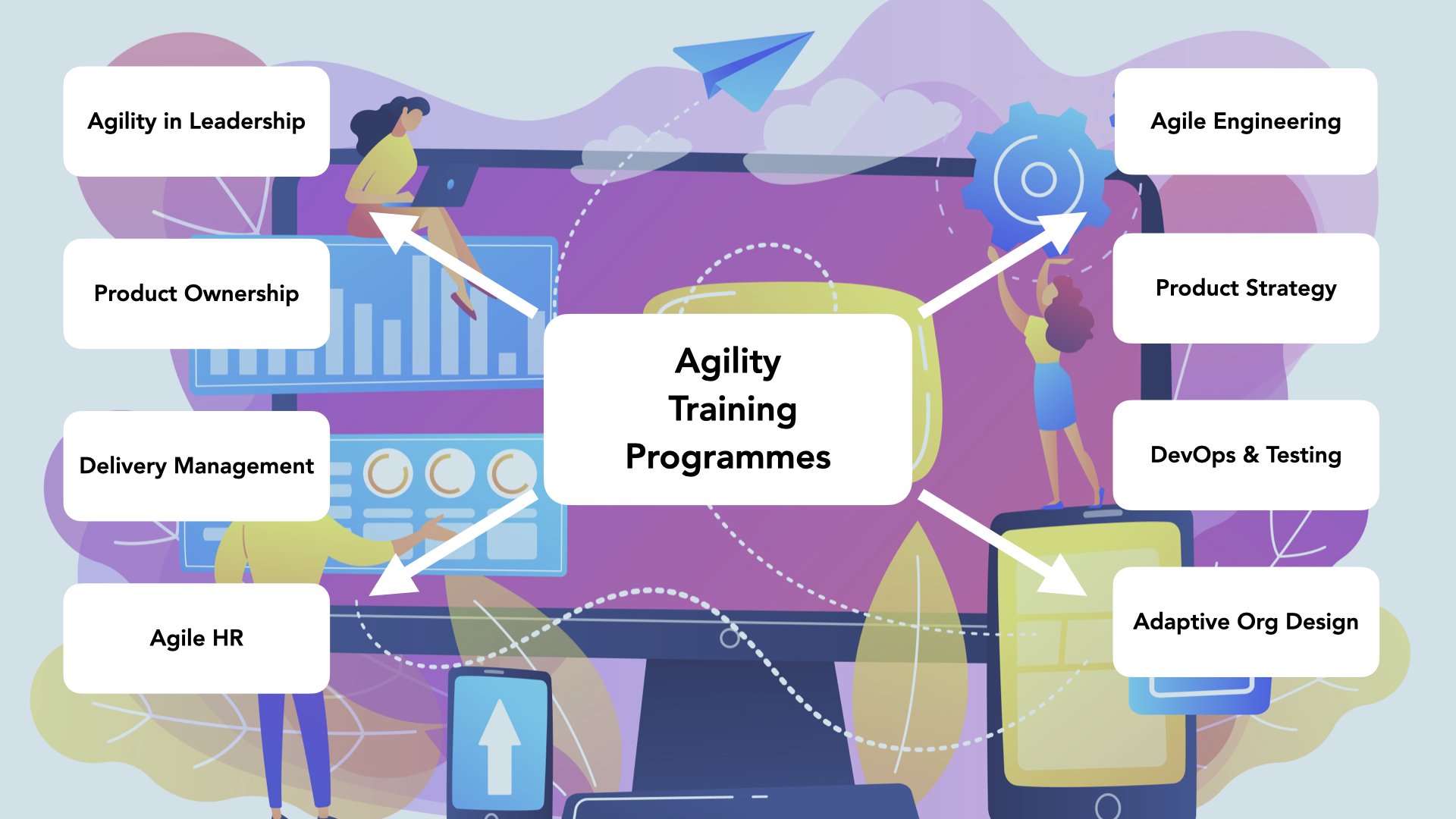Unlocking Business Agility: Cross-Skilling & Upskilling
We are at a pivotal moment in the evolution of the Middle East economy. As businesses and governments strive to future-proof their operations, the need for adaptable and versatile talent has never been greater. Samar Sayegh aptly highlights this in The National News:
“ As the global economy grapples with skills and labour shortages, including here in the Middle East, skills that empower transformation strategies are being prioritised.
”
As an Agile Transformation Consultant, I firmly believe that developing enterprise-wide business agility is the cornerstone of long-term economic success and sustainability. It enables organisations to become engines of continuous innovation, adapting to changing market demands with ease.
The Rise of Multi-Disciplinary Talent
Today’s workforce is shifting. Roles like Product Owner, Business Analyst, and Agile Delivery Lead are increasingly expected to be filled by multi-skilled professionals. Organisations are no longer looking for specialists confined to a single role. Instead, they are seeking individuals who can wear many hats, navigating product strategy, managing team dynamics, and delivering value with agility.
By embracing upskilling and cross-skilling, businesses can transform their workforce into a flexible talent pool, capable of driving innovation and responding quickly to new challenges. This creates a learning organisation, a space where growth, creativity, and resilience flourish.
Building Talent Density Through Skill Diversity
Empowered, collaborative teams led by inspirational leaders are the foundation of business excellence. Investing in the development of your people is no longer optional, it’s critical. Upskilling and cross-skilling not only cultivate local talent but also elevate an organisation’s global competitiveness, attracting top-tier talent from around the world.
Organisations that prioritise progressive personal and team development create an environment where learning is embedded into the culture. HR and Talent teams play a crucial role here, shifting their focus to the strengths and potential of their people. By reducing non-value-added work, businesses can focus on developing talent that drives value, fostering innovation and adaptability.
Leaders as Catalysts for Growth
To unlock the full potential of their people, leaders must play an active role in identifying skills gaps and crafting tailored development plans. This is not just about filling immediate needs; it’s about future-proofing teams to thrive in a fast-evolving market.
“Saudi Arabia’s Vision 2030 and the UAE’s Vision 2031 both outline their aims of creating a globally competitive workforce, with upskilling being a key driver of their transformation agendas,” notes Sayegh. Nationalisation efforts and sustainable talent pipelines rely heavily on cross-skilling to ensure a broad, adaptable workforce that can lead the region into the future.
The Path Forward: Agility Through Investment in People
Organisations that commit to continuous skill development will:
Build business agility, ensuring long-term economic success and sustainability
Evolve into learning organisations where innovation thrives
Nurture local talent while attracting and retaining global expertise
As the Middle East looks ahead to a new economic era, businesses must recognise that true agility lies not just in processes or technology, but in the depth and diversity of their people’s skills.
As a leader, if you’re looking to drive true agility within your teams, reach out to us at Agile-Leads. We offer practical skills development programs and globally recognised professional certifications to help your teams thrive in today’s fast-evolving business landscape.
Source - The National Article ‘Why upskilling is much more than a quick fix’
A Little Disclaimer:
My words are my own. Whilst Chat GPT is an amazing resource to check my grammar, suggest better formatting and provide catchier headlines when my brain fog sets it, it cannot provide verifiable data without substantiation. It cannot replace experience or the passions and inspirations which fuel our professional lives. The data and trends I have included have been substantiated via the sources detailed below. The insights given in this article are based on my +21 years professional experience, my +6 years in senior leadership roles in The UAE and my own wide-ranging research. If this article has resonated with you please feel free to comment and share, feedback is always welcome and appreciated.

